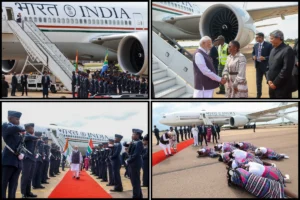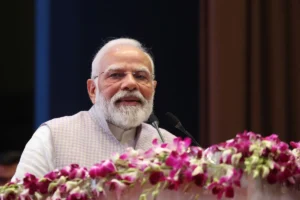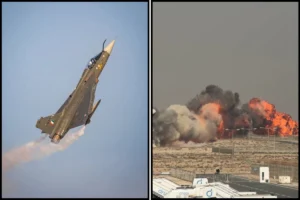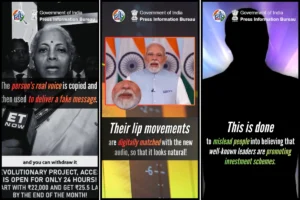
Tensions between nuclear-armed neighbours India and Pakistan reached alarming levels this week, as both countries launched military strikes across the border, accusing each other of unprovoked aggression and airspace violations.
The conflict has resulted in the deaths of at least 48 people and drawn international concern.
Pakistan launched a military operation against India on Saturday, targeting several Indian air bases in retaliation for earlier Indian strikes on what New Delhi described as ‘terrorist infrastructure’ within Pakistani territory.
The operation, named ‘Operation Bunyanun Marsoos’ by Pakistan, hit sites including missile storage and strategic bases in northern India.
India responded with counterstrikes and reported high-speed missile attacks on its air bases in Udhampur, Pathankot, Adampur, and Bhuj.
The Indian military confirmed limited damage to equipment and personnel and stated, “All hostile actions have been effectively countered.”
Pakistan-India Civilian Casualties And Damage
Indian authorities reported that Pakistani missile attacks killed five civilians in the Jammu region of Indian-administered Kashmir.
In Pakistan, officials stated that air defences had intercepted most Indian missile strikes, although one strike reportedly targeted an area near the capital, Islamabad.
National Command Authority Meeting Controversy
The situation escalated further when Pakistan’s military initially stated that Prime Minister Shehbaz Sharif had called a meeting of the National Command Authority (NCA)—the top civilian and military body responsible for strategic decisions, including nuclear policy.
However, Pakistan’s Defence Minister Khawaja Asif later gave a televised interview in which he contradicted that claim, stating that no such meeting had taken place or was scheduled.
He added, “This thing that you have spoken about (nuclear option) is present, but let’s not talk about it — we should treat it as a very distant possibility.”
Calls For De-escalation
The international community reacted swiftly to the escalating hostilities. US Secretary of State Marco Rubio contacted Pakistan’s Army Chief General Asim Munir and India’s Foreign Minister Subrahmanyam Jaishankar, urging both sides to de-escalate tensions and ‘re-establish direct communication to avoid miscalculation.’
Jaishankar, in a post on X, reiterated India’s commitment to a responsible and measured approach. “India’s approach has always been measured and responsible and remains so,” he said.
Had a conversation with US @SecRubio this morning.
India’s approach has always been measured and responsible and remains so.
🇮🇳 🇺🇸
— Dr. S. Jaishankar (@DrSJaishankar) May 10, 2025
Pakistan’s Foreign Minister Mohammad Ishaq Dar expressed a willingness to de-escalate if India ceased hostilities, saying, “If India stops here, then we will consider stopping here.”
Troop Movements And Readiness
The Indian military observed increased troop movements by Pakistan toward forward positions, indicating a possible offensive posture.
Indian Wing Commander Vyomika Singh stated, “Indian armed forces remain in a high state of operational readiness. We will not escalate the situation as long as the Pakistan military also chooses not to escalate.”
Pakistan-India Tension Background
The latest flare-up began on Wednesday when India launched airstrikes on what it described as militant targets inside Pakistan.
India claimed the strikes were in retaliation for a deadly attack on Hindu tourists in Indian Kashmir last month. Pakistan denied involvement in the incident.
Since then, both nations have exchanged artillery fire, drone incursions, and missile attacks across the Line of Control, in what has become the most intense fighting since the 1999 Kargil conflict.
Global Concern Over Nuclear Flashpoint
Analysts and diplomats have long warned that South Asia remains one of the most dangerous nuclear flashpoints in the world.
The prospect of escalation between India and Pakistan continues to alarm the international community, with widespread calls urging both governments to step back from the brink.
Also Read: PM Modi Holds Emergency Defence Review After Strikes On Pakistani Airbases
To read more such news, download Bharat Express news apps






















